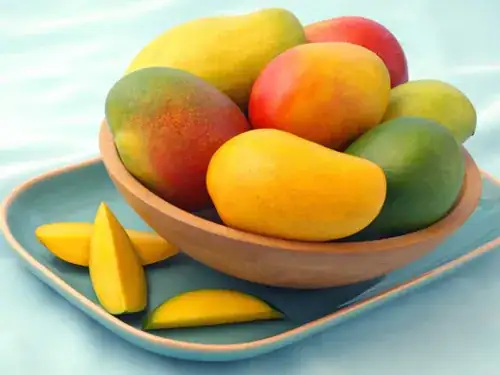I've heard a lot of people jokingly spell "anime and manga" as "animus and mangos". I don't really know what an animu is, but I know that a mango* is a pretty delicious fruit:

While those do look delicious, I don't see much connection to manga. It's probably just a silly misspelling that someone thought was amusing, and it caught on the same as any other meme.
When did this "misspelling" originate, and is it actually a misspelling or is there some deeper reason behind why "manga" are sometimes spelled like this?
*Technically, the correct plural for mango should be "mangoes" but I'm willing to chalk that up to bad spelling on the internet.